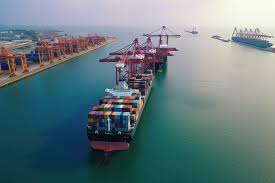Choosing the right freight forwarder can make or break your business logistics.
For Indian SMEs and logistics managers, the stakes are high. A missed delivery, delay at customs, or an unexpected fee doesn’t just hurt profit margins—it damages customer trust. Whether you’re moving goods across Indian states or shipping globally, freight needs precision, transparency, and reliability.
That’s why choosing the right freight forwarders isn’t just a box to check. It’s a strategic decision that impacts your day-to-day operations and long-term growth.
Let’s break down what truly matters when selecting a freight partner in India.
Why the Right Freight Forwarder Matters
A good freight forwarder acts as the middle layer between your product and the end location. They manage shipments, ensure compliance, and coordinate across carriers and borders. For shippers seeking vehicle‑specific logistics, partnering with a dedicated specialist like https://www.shiply.com/us/car-shipping/north-carolina-car-shipping ensures compliance with both automotive transport and freight forwarding standards.
But not all freight forwarders are created equal.
What can go wrong with the wrong choice?
- Missed shipping windows
- Delays at customs
- Unclear tracking and communication
- Unpredictable surcharges
Key Factors to Evaluate Before You Decide
Experience With Indian and Global Trade Routes
India’s logistics landscape is complex. Ports like JNPT, Mundra, and Chennai all have unique clearance procedures and local regulations.
You need a forwarder who:
- Understands region-specific workflows
- Knows local ground realities (strikes, congestion, port handling)
- Has experience with both domestic and international shipments
What to ask:
- Have you handled exports/imports at this port before?
- Can you manage last-mile delivery in remote regions?
Transparent Pricing and No Hidden Fees
Pricing in logistics can be tricky. Forwarders often provide base rates but add fuel, handling, or delay charges later.
Look for a partner who:
- Gives full rate breakdowns upfront
- Shares their partner network costs openly
- Doesn’t upsell services after onboarding
What to ask:
- Are there any extra charges during peak season?
- Do you charge for delays caused by customs clearance?
Tip: Tech-driven platforms like Frayto simplify this by offering clear pricing dashboards and upfront quotes.
Strong Carrier and Partner Network
Your freight forwarder is only as strong as the carriers and handlers they use. A weak network means missed timelines and miscommunication.
What to look for:
- Verified relationships with air, ocean, rail, and trucking providers
- Reliable ground handling and warehousing
- Smooth handover between carriers and stages
Red flags:
- They can’t name or verify their partner list
- They don’t offer shipment milestones from origin to delivery
End-to-End Visibility and Tracking Tools
Visibility isn’t just a nice-to-have—it’s a standard. Without real-time updates, you’re operating blind.
Look for:
- Live shipment tracking
- Delay alerts
- API/ERP integrations
Operational Readiness and Service Standards
Customs paperwork isn’t just about filling out forms. A small error can lead to long delays.
Your freight forwarder should help with
- Bill of Entry, Shipping Bill, and GST documentation
- DGFT licensing and product categorization
- Risk flags or restricted item alerts
Checklist:
- Does the forwarder have a customs clearance desk?
- Do they pre-verify documents before handoff?
Responsiveness and Communication
Delays happen. But if your forwarder isn’t reachable when you need support, problems escalate.
What to expect:
- A single point of contact
- Fast response on email or phone
- Proactive updates, not reactive excuses
Scenario: A Chennai importer once waited 36 hours for an update during port congestion. The forwarder didn’t reply, causing confusion for downstream supply planning.
Good partners are reachable and accountable.
Signs of a Future-Ready Freight Partner
Tech-Enabled Process Management
Modern supply chains are digital. Your freight forwarder should not be working off spreadsheets and phone calls alone.
Look for:
- Shipment automation tools
- AI-assisted route planning
- Platform-based coordination
According to a Vi Business study, over 66% of logistics MSMEs in India have already achieved more than 50% digital maturity.
Flexibility and Scalability
Your logistics needs will evolve. Can your freight forwarder grow with you?
Look for:
- Experience with FCL, LCL, and bulk shipments
- Ability to handle temperature-sensitive or high-value goods
- Network coverage during festive or seasonal surges
Questions to ask:
- Can you handle same-day bookings if needed?
- How do you scale during peak seasons?
Final Checklist Before You Onboard a Freight Forwarder
Use this as a quick reference before signing on with a freight partner:
| Criteria | What to Check |
| Port Experience | Do they operate in your shipment region? |
| Pricing Transparency | Are there breakdowns of all charges? |
| Visibility Tools | Do they offer real-time tracking? |
| Customs Expertise | Can they support document verification? |
| Network Strength | Are partners vetted and accountable? |
| Communication | Is there a single, reliable point of contact? |
| Scalability | Can they support your future growth? |
Closing Thoughts
Choosing a freight forwarder isn’t just about price—it’s about reliability, clarity, and future readiness.
Don’t rush the decision. Take the time to evaluate their tools, network, and communication approach. What works for one business might not work for yours.
Platforms like Frayto are making this process easier by bringing visibility, pricing clarity, and tech-driven support to Indian logistics.
Whether you’re an SME starting cross-border trade or a growing domestic brand, the right partner will reduce uncertainty and give you control over your supply chain.
